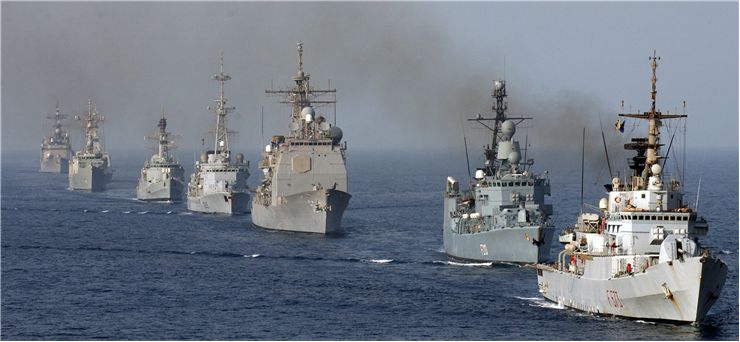Somali Pirates and Somaly History
Organized acts of piracy in the 21st century was almost nonexistent until the start of the second phase of the Somali Civil War in 2005, when the coast surrounding the Somalia and the Red Sea became under constant attack from the force of numerous Pirates. Today, the impact of their attacks on the one of the most used shipping lane had profound effect on the world economy, and has spawned several branches of profiteers who used this situation for their business purposes (most notably ship insurance companies which earned significant profits). Currently, it is speculated that the impact of piracy and the rise in the shipping cost traveling through affected waters has an annual expense of £10 billion.
There are several theories that describe the creation and the purpose of the Somalia piracy, which has enormous support by the coastal local people in Somalia. Some claim that first acts of piracy started from the illegal fisherman's, who wanted to protect their fishing grounds, but some reports mention that the illegal dumping of toxic waste in the Somali waters by foreign vessels created the massive loss of sea life which prevented the massive fleet of Somali fisherman to earn for their living. Over 70 percent of Somali population supports their pirate fleet, and they look to them as the first and only line of defense against foreign aggressors. Civil war that ravaged Somalia for many years created a vacuum in which pirated took over the job of coastal guars (after disintegration of their Armed Forces), and many of the Somali claim that their pirate fleet is responsible for the defense and protection of their fishing grounds. However, during recent years it is speculated that great financial gains brought the creation of the professional pirates whose only objective is the pillaging of the ships.
As of 2008, several international armies have increased their attention toward the piracy around Somali waters. Indian Navy deployed their first warship into Gulf of Aden in October 2008, and in the same year they were joined by the Russia. Currently multinational coalition task force "Combined Task Force 150" is responsible for the protection of the shipping lanes together with "Maritime Security Patrol Area" which took the role of fighting the Somali piracy. After execution the multiyear plan (that included better protection of the ships, and coordinated attack on the ground facilities held by pirates), piracy in the area of Somalia was greatly reduced. Many pirates abandoned their attacks and focused their raids to the Somali Basin and the wider Indian Ocean, but even with the coordinated international protection, pirates still manage to capture and pillage many ships each year (although that number has decreased from 86 attacks in 2009 to just 33 in 2010).
It is believed that piracy in Somalia has become organized business, and that several criminal warlords have their own fleets of pirate ships. Lucrative cargo and very big ransoms are the main motivation for both warlords and pirates (who all receive portion of earned money).
During 2010, total of 4,185 seafarers had been attacked and over 1000 has been held hostage by the pirates. In the previous four years, over 60 seafarers have died while being held captive, and during 2011 Somali pirates were holding in their possession over 15 ships and estimated number of 321 hostages.
